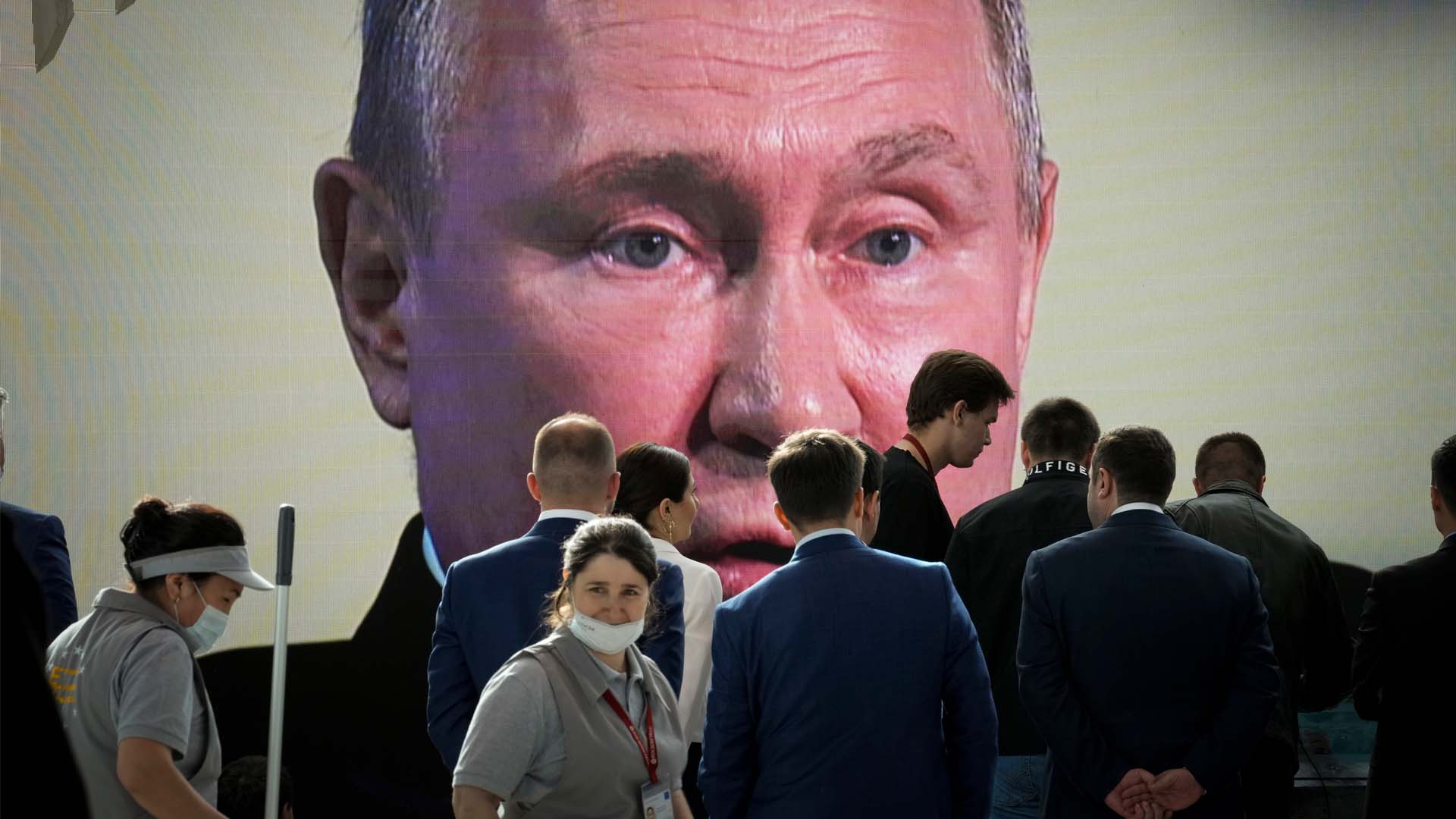
Dealing with nuclear-armed, authoritarian Russia in the middle of a war requires nimble Western diplomacy. Thus far, the West and its democratic allies have imposed sanctions against key members of Russian President Vladimir Putin’s entourage, including his family, the state security apparatus and the oligarchs.
The immediate purpose of the sanctions is to defeat Russia by reducing the export revenue Moscow is using to sustain the war. The threat of further sanctions could help end the war. The promise of their repeal could help obtain agreements for United Nations monitoring and other peacemaking measures.
However, sanctions can be a dangerous instrument because the high domestic political cost of organizing them. The tricky co-ordination with allies also often makes them difficult to repeal. Western relations with Russia encompass many more issues than simply the war in Ukraine.
Potential points of lethal conflict include China attacking Taiwan with Russia’s backing or Russia undermining brazenly the world’s non-proliferation regime by sharing nuclear weapons technology with other anti-Western regimes such as North Korea or Iran.
Western countries, including Canada, must establish a permanent international sanctions co-ordination committee to formulate and implement policies free of cumbersome government decision-making processes or interest group pressures.
The inertia of sanctions
Once sanctions are imposed, the original reason for them is often supplanted by new political goals and a form of sanctions inertia takes over. Criteria with crude benchmarks for the advancement of human rights or democratization become thresholds difficult to define and impossible to meet. Sanctions are rarely easily withdrawn, even when the initial outrage that led to their implementation is removed, unless governments are replaced (not a likely outcome in Moscow for the foreseeable future). This has been the case with sanctions on Iran, Iraq, Libya, Syria, North Korea, Venezuela and Myanmar.
Poorly designed sanctions against Moscow – perhaps driven by the fantasy of regime change involving an anti-Putin coup or through a popular uprising – will drive Moscow to retaliate. Russia is powerful enough to disrupt global initiatives even the Soviet Union ratified. Moscow’s arms manufacturing and trade could contravene norms against the use of cluster munitions; anti-personnel landmines; flechette rounds; napalm; thermobaric weapons; persistent and non-persistent chemical agents; biological warfare research; nuclear testing; weaponization of the ocean floor and space; incidents at sea; and nuclear proliferation.
Is Canada abandoning collective security in favour of a new isolationism?
Russia may also seek to undermine multilateral negotiations over enrichment efforts and missile proliferation in Iran, North Korea and Syria. Most worrisome, Moscow may approach Beijing for an alliance. The main deterrent to a Chinese attack on Taiwan is the implicit threat of a Western naval blockade against Chinese energy, mineral and food imports, which could be compromised if Russia provides Beijing access to its Eurasian resources and rail network to circumvent the blockade and related sanctions.
Outside the security domain, Russia may undermine advances on pollution, climate change and nuclear reactor safety.
Sanctions are a form of shared pain for the target state and domestic economic interests for those states imposing them. To sell sanctions, governments often use evidence of abuse collected by human rights campaigners, which compounds the difficulty of reversing sanctions. Activist groups are sometimes even contracted to implement policy, hijacking and distorting the original purpose of sanctions, from stopping a war to more subtle human rights goals.
Democratic countries were defeated by the Taliban in Afghanistan in 2021 after an investment of more than $2 trillion because governments surrendered policy to domestic human rights groups intent on an unsustainable program of progressive reforms. The original U.S. policy in Afghanistan was to eliminate terrorist sanctuaries, but there was “mission creep” that grew to include nation-building and enforcement of international human rights standards. The consequence was a catastrophic policy failure.
A question of culture
Current demands to prosecute war crimes against invading Russian forces and to impose war reparations in the trillions of dollars have the potential to paralyze a negotiated end to the Russian invasion. They could freeze post-war discussions over borders, on removing minefields and unused weapons, and returning prisoners and remains. Surrendering the sanctions regime to human rights principles will also split the Western alliance, given that Russian social conservatism is similar to majoritarian sentiments in Poland, Hungary and elsewhere.
Russia had no territorial threat from Ukraine or the rest of Europe. Putin’s core motive for invading Ukraine was to create a geographic-cultural buffer against the liberal values that he believes are corroding traditional Russian values, and driving the decline in the Russian birth rate. Letting human rights groups drive sanctions policy only adds fuel to this cultural conflict.
Putin appreciates that an aging and declining population will result in a loss of power for Russia, relative to Turkey, Iran and its Central Asian neighbors. Putin’s solution is a domestic alliance with the Orthodox Church, and legal promotion of a conservative family model. However, Putin did not learn the Soviet lesson that not even a totalitarian system can increase fertility rates. Instead, to increase Russia’s power, he should have had the courage to pursue a national strategy of technological innovation, built on the stable foundation of political liberalism. This would mean accepting the eventual independence of some of Russia’s legacy colonies, such as Chechnya and Dagestan.
The commitment to a morally driven foreign policy is important to rally support for Ukraine but is creating a dangerous expectations of an ultimate triumph against Russian forces and Putin. This will lock the West into a permanent confrontation with Moscow, and push Russia into being a captive energy supplier and ally for Beijing.
The policy goal of managing Russia beyond its attack on Ukraine requires a pragmatic sanctions regime that recognizes that a values-based approach could provoke an enduring rivalry with Moscow. Russia cannot be isolated and it will eventually recover. Russia’s status as a global citizen will largely be determined by how it is guided back into the European community.










